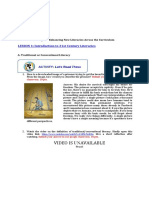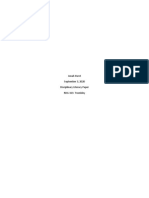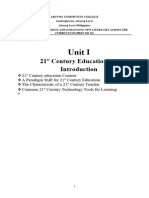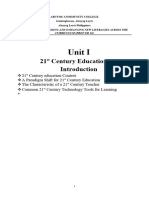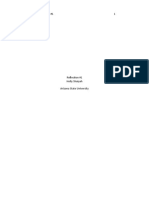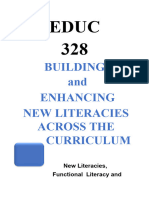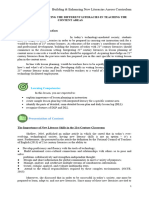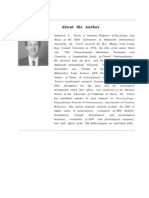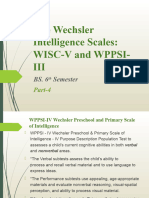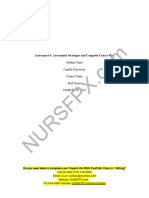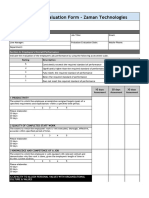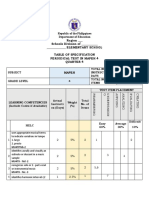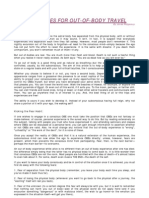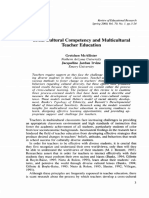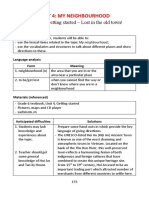ProfEd.
10
(Building Enhancing New Literacies Across the Curriculum)
Chapter 1: Introduction to 21st Century Literacies
Salvador Villaranda BSED Filipino III-B
Activity 1: Reflection
1. As a pre-service teacher, what kind of written materials should you be able to read and
understand? Are you reading these materials? How well can you understand them?
As a pre-service teacher, I am using many tools reading and writing materials such
as Google Grammarly, spreadsheets, and Microsoft word.
I Rely on an online website it is fast, easy and convenient to use
Abused social media for advance learning and earning,
It is easy to understand in just one click it will give you some options and a lot of choices for the
answer. On the other hand, I am not tolerating children to use social media it is better to use the
traditional way of learning
But in the meantime, during the Pandemic social media is advisable for you to learn and to be
successful.
2. Which of the new literacies are you knowledgeable in ? Which of the new literacies do you
lack knowledge in?
I am knowledgeable in reading and writing because it is the fundamental of our learning. I am
locked in comprehension specially that there are words that new to me.
Activity 2: Evaluate!
1. Compare and contrast the traditional concept of literacy to the modern view of literacy?
The traditional concept of literacy is to be able to understand the meanings of words in their
application.The modern view of literacy will be dynamic for the multiples of options and their
connected and unconnected functions.No matter what field with the understanding of synergistic
policies and opportunities you are bound for success. Traditionally, literacy education has focused
on teaching reading comprehension, writing and effective communication. However, as modern
forms of communication, collaboration and research shift increasingly to digital formats, digital
literacy has become an important facet of overall literacy education.In order to succeed in school
and beyond, students need to understand how to navigate the digital world. This includes
�knowing how to use technology in the classroom to research, critically evaluate and process
information as well as creating and communicating within a digital context. Integrating digital
literacy into literacy learning is an essential component of a graduate degree in reading education,
such as an online Masters of Science in Education in Reading. Although digital literacy is essential
to literacy learning, integrating it into standards-based curricula can be challenging. The
integrated approach to teaching reading comprehension can be useful in digital literacy instruction
as well. This approach applies the principles of reading instruction across subject-matter curricula.
Similarly, digital literacy instruction should follow students through every subject. This can help
students develop a well-rounded grasp of digital literacy and its applications.
2. Describe the changes in the 21st century that have led to the rise of new literacy?
The most obvious change is the ubiquity of the Internet. Understanding what is out there and
differentiating factual sources from misinformation is a sorely needed literacy…I suppose that falls
under critical thinking. The second one is computers themselves, which allow people to
communicate, search, organize what they find, etc. We used to call this “computer literacy,” a
term that seems to have gone into disuse in this century. I think one could make the case for the
third change being visual literacy. Movies and TV shows have become much more sophisticated,
and frequent viewing has led many to become more discerning and demanding.
REFLECTION
How Critical is our role as teachers to help our learners gain these fundamental skills?
Teachers play a very important role in a student’s life. As a teacher, one must bring out the best
in students and inspire them to strive for greatness. Students are considered as the future of the
nation and humankind, and a teacher is believed to be a credible guide for their advancement.
Not only do they guide students in academics or extracurricular activities, but teachers are also
responsible for shaping a child’s future, making him/her a better human being. A teacher imparts
knowledge, good values, tradition, modern-day challenges and ways to resolve them within
students. A good teacher is an asset to the students. A teacher’s presence in a student’s life can
boost their morale and guide them to be more valuable in life. Now to perform this task perfectly,
a teacher must possess certain qualities. Should be impartial, he/she must treat all the students
equally.Must be an embodiment of patience. Since the pace and speed of learning are different
from one student to other, it is very important to understand students, their skills, talent, memory
and treats them individually to guide them towards the best. A teacher must have problem-solving
skills to help students overcome their challenges.
Probing !
�Can we all relate to Teacher Dan’s case? If so, let us further understand his case by answering the
following probing questions:
1. Based on Teacher Dan’s case, how important are the fundamental skills to our learners?
Literacy is not just about learning to read and write. It is necessary in order to learn any
subject at school. Similarly, numeracy is more than counting numbers. Both skills are at an
interplay in the holistic performance of our learners.
2. What is/are your role/s to help these learners gain these fundamental skills in order to
enjoy success in learning?
Teachers play an essential role in the academic success of all the children they teach. However, it
is critical that they play an even more dominant role in helping children who are facing academic
failure and/or performing below their academic potential. Admittedly, this isn’t an easy task with a
classroom full of other students who also need the teacher’s help and guidance. In additional
challenge for many teachers is learning to effectively cope with the differences in culture and
socioeconomic status that may exist with their students. Such differences may include learning
and social styles, as well as communication skills, and the gaps they can create between teacher
and student can be frustrating and even overwhelming.
3. What is/are your role/s to further strengthen these fundamental skills in each of your
learners for them to thrive further?
As teachers of literacy and numeracy across the curriculum, we should provide our learners
a range of different contexts in which they can use these skills. We all have the
responsibility to promote these skills in our classroom. In all levels and curriculum areas,
we should explore the possibilities of extending and complementing numeracy and literacy.
We should give our children quality instruction so that they can have the best chances to
succeed in life.
4. What have you realized about your impact on your learners’ literacy skills development
regardless of their grade level?
Literacy is strengthened, made specific and extended in other learning areas, and
the use of mathematical skills across the curriculum enriches the study of each curriculum
area and contributes to the development of a boarder and deeper understanding in
numeracy. For educators, the future is not an abstract concept. We can see the future daily
in the faces of the young people in our classroom. We know the fundamentals of education
will not change. Literacy and numeracy are, and always be the foundations of learning.
Therefore, the teaching of discipline-specific literacy and numeracy skills are cross-circular
responsibilities of all teacher.
�Activity 3: Reflection!
1. As Education student, how deep your level of comprehension? And how can you improve
if needs enhancement?
Reading comprehension is the ability to process information that we have read and
understand its meaning. This is a complex process with three levels of understanding:
literal meaning, inferential meaning, and evaluative meaning. Literal meaning is what the
text describes as happening in the story
2. How will you develop the literacy of your students in the near future?
Teaching literacy to students means that they are given the ability to communicate clearly and
effectively and form the foundation of modern life. Students that can’t read effectively fail to grasp
important concepts, score poorly on tests and ultimately, fail to meet educational milestones.
Literacy skills allow students to seek out information, explore subjects in-depth and gain a deeper
understanding of the world around them. When they can not read well, they become discouraged
and frustrated by school, which can result in high school dropouts, poor performance on
standardized tests, increased truancy1 and other negative reactions, all of which can have major
and long-lasting repercussions.2 By teaching students to communicate effectively, you help create
engaged students who learn to love the act of learning. This is why it is so important to think
about your strategies for teaching literacy skills in your classroom.






